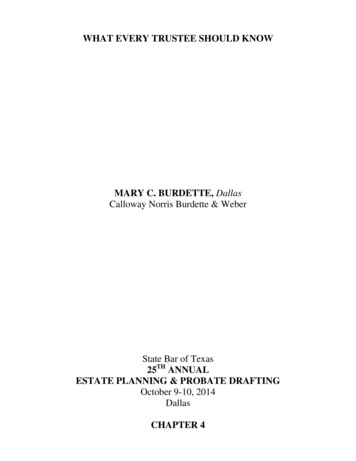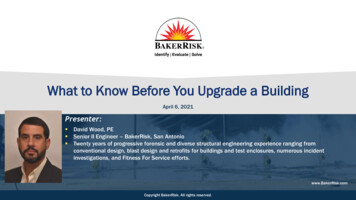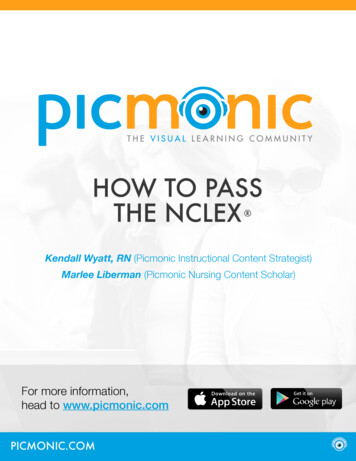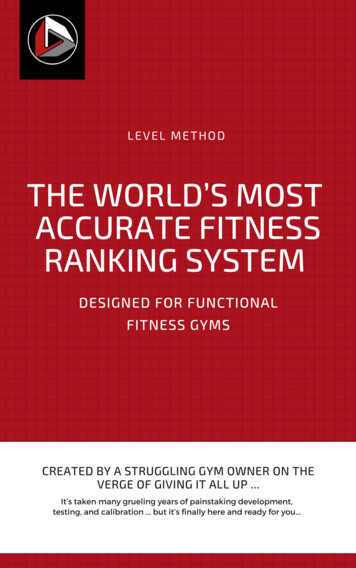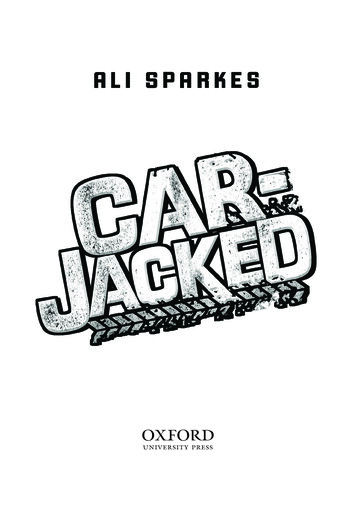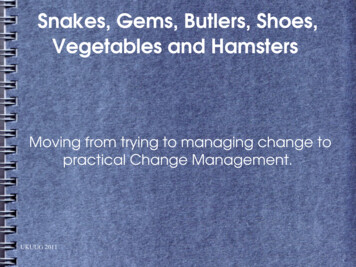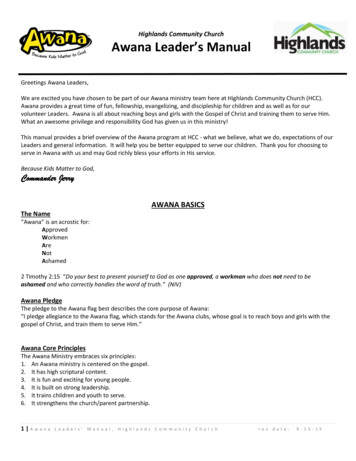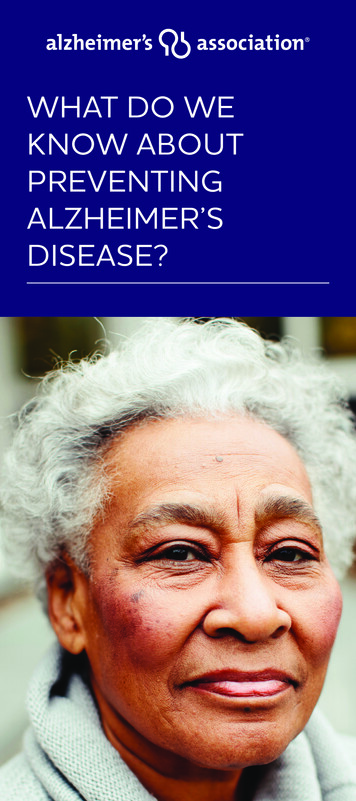
Transcription
WHAT DO WEKNOW ABOUTPREVENTINGALZHEIMER’SDISEASE?
YOU CAN REDUCE YOUR RISKOF COGNITIVE DECLINE.Cognitive decline is a deterioration in memoryor cognition that is, to some extent, expectedwith age. Normal cognitive decline is differentfrom dementia in that it is not severe enough tointerfere with daily life.Research is still evolving, but evidence is strongthat people can reduce their risk by making keylifestyle changes, including participating in regularphysical activity and maintaining good hearthealth. Based on this research, the Alzheimer’sAssociation offers 10 Ways to Love Your Brain,a collection of tips that can reduce the risk ofcognitive decline.
WE DON’T KNOW HOW TOPREVENT ALZHEIMER’SDISEASE — YET.Alzheimer’s is a fatal disease of the brain thatcauses problems with memory, thinking andbehavior. It is the most common cause ofdementia, a general term for the loss of memoryand other abilities serious enough to interferewith daily life.While Alzheimer’s is not normal aging, age isthe greatest known risk factor for developingthe disease. However, many experts believe themajority of cases occur as a result of complexinteractions among genes and other factors.Medications are available to temporarily improvecognitive function and quality of life, but there isno known way to prevent, cure or even slow thedisease — yet. The Alzheimer’s Association isleading the worldwide effort to find a treatmentfor Alzheimer’s, delay its onset and prevent itfrom developing.
10 WAYS TO LOVE YOUR BRAINIt’s never too late or too early to start thinking about your brain’s health — making healthy choices at any age is beneficial. The Alzheimer’s Associationhas identified the following lifestyle habits as ways to reduce your risk of cognitive decline and maintain or potentially improve your overall health.BREAK A SWEATEngage in regularcardiovascular exercise thatelevates your heart rate and increasesblood flow to the brain and body. Severalstudies have found an associationbetween physical activity and reducedrisk of cognitive decline.HIT THE BOOKSFormal education in anystage of life will help reduceyour risk of cognitive decline anddementia. For example, take a class at alocal college, community center or online.BUTT OUTEvidence shows thatsmoking increases risk ofcognitive decline. Quitting smoking canreduce that risk to levels comparable tothose who have not smoked.FOLLOW YOURHEARTEvidence shows that risk factorsfor cardiovascular disease and stroke —obesity, high blood pressure and diabetes —negatively impact your cognitive health. Takecare of your heart, and your brain justmight follow.HEADS UPBrain injury can raise your riskof cognitive decline anddementia. Wear a seat belt, use a helmetwhen playing contact sports or riding a bike,and take steps to prevent falls.FUEL UP RIGHTEat a healthy and balanced dietthat is lower in fat and higher invegetables and fruit to help reduce the riskof cognitive decline. Although research ondiet and cognitive function is limited, certaindiets, including Mediterranean andMediterranean-DASH (Dietary Approachesto Stop Hypertension), may contribute torisk reduction.CATCH SOME ZZZ’SNot getting enough sleepdue to conditions likeinsomnia or sleep apnea may result inproblems with memory and thinking.TAKE CARE OFYOUR MENTALHEALTHSome studies link a history of depressionwith increased risk of cognitive decline,so seek medical treatment if you havesymptoms of depression, anxiety orother mental health concerns. Also, tryto manage stress.STUMP YOURSELFChallenge and activate yourmind. Build a piece offurniture. Complete a jigsaw puzzle. Dosomething artistic. Play games, such asbridge, that make you think strategically.Challenging your mind may have shortand long-term benefits for your brain.BUDDY UPStaying socially engaged maysupport brain health. Pursuesocial activities that are meaningful to you.Find ways to be part of your local community— if you love animals, consider volunteeringat a local shelter. If you enjoy singing, join alocal choir or help at an afterschool program.Or, just share activities with friends and family.LEARN MORE» Healthy Living for Your Brain and Body:Tips from the Latest ResearchThis program, based on the most currentresearch in healthy aging, is available online atalz.org/education and through chapter officesacross the country.» alz.org/researchFind information on risk factors and currentresearch into prevention.
alz.org/10waysLearn more about 10 Ways to LoveYour Brain.alz.org/educationFree online workshops, including:» Understanding Alzheimer’s and Dementia.alz.org/CRFWe’re in communities nationwide.800.272.390024/7 Helpline – Available all day, every day.The Alzheimer’s Association is the leading voluntary healthorganization in Alzheimer’s care, support and research.Our mission is to eliminate Alzheimer’s disease throughthe advancement of research; to provide and enhancecare and support for all affected; and to reduce the riskof dementia through the promotion of brain health.Our vision is a world without Alzheimer’s disease .800.272.3900 alz.org This is an official publication of the Alzheimer’s Association but may be distributedfreely and without charge by unaffiliated organizations and individuals. Suchdistribution does not constitute an endorsement of these parties or their activitiesby the Alzheimer’s Association. 2020 Alzheimer’s Association . All rights reserved.Rev. Mar19773-10-0011
Challenge and activate your mind. Build a piece of furniture. Complete a jigsaw puzzle. Do something artistic. Play games, such as bridge, that make you think strategically. Challenging your mind may have short- and long-term benefits for your brain. BUDDY UP Staying socially



